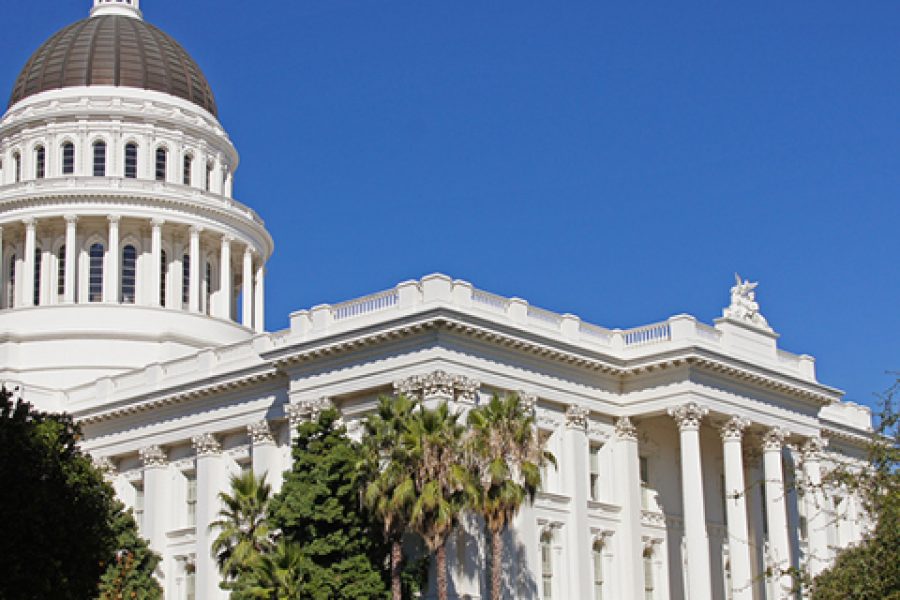Much of the political energy in Sacramento and Washington lately has focused on taxes. Speculation has focused on which taxes liberal politicians will raise, and by how much. While pundits are all but declaring it a fait accompli, two recent developments suggest it will be more difficult than first thought.
In California, Assemblyman Alex Lee (D-San Jose) has proposed legislation to “impose a 1% annual tax on net household wealth of more than $50 million and an additional 0.5% tax on household wealth of more than $1 billion,” according to CBS Bay Area. Lee estimates the plan, which would be subject to voter approval, would generate “$22.7 billion for our communities” annually.
With significant progressive energy behind wealth tax proposals, it should be a slam dunk in a state with a legislative liberal supermajority. Think again.
A group of 6 moderate Democrat Assemblymembers just threw cold water on the plan in a recent CALmatters op-ed. Their opposition could deny the plan the two-thirds vote needed to pass the Assembly.
Citing its potential in encouraging more billionaires to follow Elon Musk and leave California – and take billions in tax revenue with them – the moderate Democrats wrote, “rather than raising income taxes even higher, we should take focused actions to build on successful strategies that create jobs, drive innovation, and support working families.” Alternatively, they advocate expanding the Earned Income Tax Credit, R&D tax credits, and other job creating measures.
They conclude, “unwise tax policy can sabotage California’s recovery.” We couldn’t have said it better ourselves.
In Congress, President Biden has proposed a $2.5 trillion “American Jobs Plan” infrastructure package. To pay for it, Biden proposes trillions in primarily corporate tax hikes in a so-called “Made in America Tax Plan.”
With Democrats holding the levers of power in Washington – albeit by razor-thin margins – they should be able to unite behind policy (infrastructure and green spending) and tax (corporate tax hikes) proposals they have long advocated. Think again.
Bucking the leadership, a group of Democratic lawmakers from New York and New Jersey have issued an ultimatum: no repeal of the State and Local Tax Deduction (or SALT) cap, no votes for the Biden tax plan.
According to Politico, “Four House Democrats — (New York Rep. Tom) Suozzi and Reps. Mikie Sherrill, Josh Gottheimer and Bill Pascrell of New Jersey — have gone public so far with their insistence on (restoring the full SALT deduction) in the upcoming package. Privately, though, several more lawmakers are in conversations about the effort and plan to formally join in the coming days, according to multiple members and aides.”
“When it comes to taxes that affect families, my line in the sand is SALT. And I think others share that view,” Rep. Gottheimer told Politico.
The SALT deduction cap was one of the key provisions of the 2017 Trump tax plan. As PRI’s Wayne Winegarden found in his 2019 study, “Making it Rain in California,” “capping the State and Local Tax deduction brought broad-based tax relief to millions of Americans, while putting an end to taxpayers in low-tax states like Indiana subsidizing higher taxes and spending in states like California.”
Democrats representing these states have plotted to repeal the SALT cap ever since it was enacted and how are seizing their opportunity.
Back in 2019, Winegarden wrote, “Some want to reverse this cap and force low tax states to again pay for big spending in California, New York, and Illinois. That would be a mistake. Taxpayers in high-tax states should demand that lawmakers reform anti-growth state tax codes and cut spending to make their economies more competitive.”
This wrinkle presents a big dilemma for Biden – and also for Pelosi and Schumer who have long championed the SALT cap repeal. Will a small group of Democrats blow up a multi-trillion-dollar tax and infrastructure plan, a key priority for a new Democratic president, to benefit primarily upper-income taxpayers in their states? It will be an interesting clash of priorities, and quite the political tightrope act in the weeks ahead.
Tim Anaya is the Pacific Research Institute’s senior director of communications and the Sacramento office.


